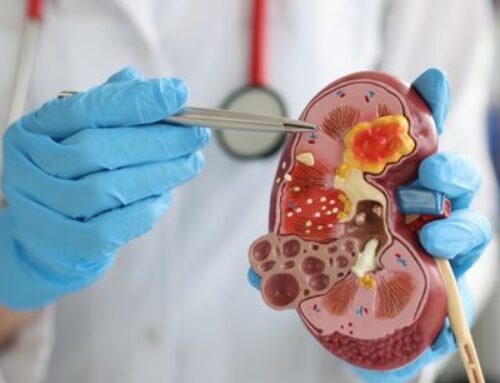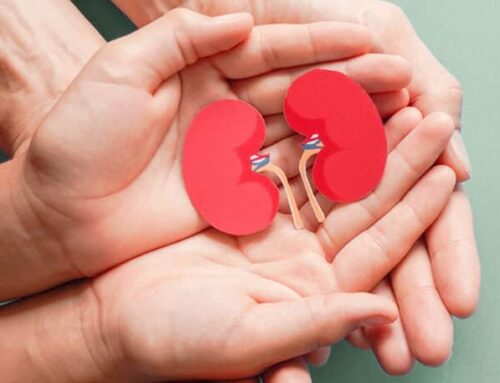 The kidneys play a crucial role in filtering waste products and excess fluids from the blood, maintaining electrolyte balance and producing hormones that regulate blood pressure and red blood cell production. However, various factors such as genetics, lifestyle choices and underlying health conditions can lead to kidney diseases. At Richmond Nephrology Associates, we’re dedicated to raising awareness about common kidney diseases and providing comprehensive care to patients affected by these conditions. In this blog, we’ll explore some of the most prevalent kidney diseases, their causes, symptoms and available treatments.
The kidneys play a crucial role in filtering waste products and excess fluids from the blood, maintaining electrolyte balance and producing hormones that regulate blood pressure and red blood cell production. However, various factors such as genetics, lifestyle choices and underlying health conditions can lead to kidney diseases. At Richmond Nephrology Associates, we’re dedicated to raising awareness about common kidney diseases and providing comprehensive care to patients affected by these conditions. In this blog, we’ll explore some of the most prevalent kidney diseases, their causes, symptoms and available treatments.
Chronic Kidney Disease (CKD)
Chronic kidney disease (CKD) is a progressive condition marked by the gradual decline of kidney function. CKD can develop as a result of various underlying factors, including:
- Diabetes: Uncontrolled diabetes is one of the leading causes of CKD. High blood sugar levels can damage the tiny blood vessels in the kidneys, impairing their ability to filter waste products effectively.
- Hypertension: High blood pressure can damage the blood vessels in the kidneys and reduce blood flow to these organs, leading to kidney damage and dysfunction.
- Glomerulonephritis: Glomerulonephritis is a group of kidney diseases characterized by inflammation of the glomeruli, the tiny filtering units in the kidneys. This inflammation can impair kidney function and lead to CKD over time.
- Polycystic Kidney Disease (PKD): PKD, a genetic disorder, is characterized by fluid-filled cysts forming in the kidneys. These cysts can enlarge over time and interfere with kidney function, leading to CKD and eventually kidney failure.
Symptoms of CKD may include fatigue, swelling of the legs and ankles, changes in urine output, difficulty concentrating and high blood pressure. Treatment for CKD focuses on managing symptoms, slowing disease progression and preventing complications such as cardiovascular disease and kidney failure. Treatment options may include medication, dietary changes, lifestyle modifications and dialysis or kidney transplant in advanced stages of the disease.
Acute Kidney Injury (AKI)
Acute kidney injury (AKI) is a sudden and temporary loss of kidney function, often caused by factors such as:
- Severe dehydration
- Infections
- Medications that can damage the kidneys (e.g., certain antibiotics, NSAIDs, contrast dyes)
- Severe blood loss or low blood pressure
- Obstruction of the urinary tract
Symptoms of AKI may include decreased urine output, swelling of the legs and ankles, confusion, nausea and shortness of breath. Treatment for AKI focuses on identifying and addressing the underlying cause, restoring kidney function and preventing complications such as electrolyte imbalances and fluid overload. Treatment options may include intravenous fluids, medications to support kidney function and dialysis in severe cases.
Kidney Stones
Kidney stones are solid accumulations of minerals and salts originating in the kidneys, often causing intense pain during passage through the urinary tract. Kidney stones can develop due to various factors, including:
- Dehydration
- High levels of certain minerals in the urine (e.g., calcium, oxalate, uric acid)
- Family history of kidney stones
- Certain medical conditions (e.g., hyperparathyroidism, urinary tract infections)
Symptoms of kidney stones may include severe pain in the back or side, blood in the urine, nausea, vomiting and frequent urination. Treatment for kidney stones depends on the size and location of the stones and may include pain management, hydration, medication to help pass the stones and procedures such as lithotripsy or surgical removal.
Glomerulonephritis
Glomerulonephritis is a group of kidney diseases characterized by inflammation of the glomeruli, the tiny filtering units in the kidneys. Glomerulonephritis can be acute (developing suddenly) or chronic (progressing over time) and can be caused by various factors, including:
- Infections (e.g., strep throat, viral infections)
- Autoimmune diseases (e.g., lupus, Goodpasture syndrome)
- Diabetes
- High blood pressure
Symptoms of glomerulonephritis may include blood in the urine, protein in the urine, high blood pressure, swelling of the face, abdomen, or legs and decreased urine output.
Treatment for glomerulonephritis aims to reduce inflammation, manage symptoms, and prevent complications such as kidney failure. Treatment options may include medication, dietary changes and immunosuppressive therapy in certain cases.
Request Your Appointment Today
Kidney diseases can have a significant impact on overall health and quality of life, but early detection and appropriate management can help slow disease progression and improve outcomes. If you or a loved one are experiencing symptoms of kidney disease, it’s essential to seek evaluation and treatment from a qualified nephrologist. At Richmond Nephrology Associates, our team of experienced nephrologists is dedicated to providing compassionate care and personalized treatment plans to help you manage your kidney condition effectively. Don’t hesitate to request an appointment and take proactive steps towards better kidney health.




